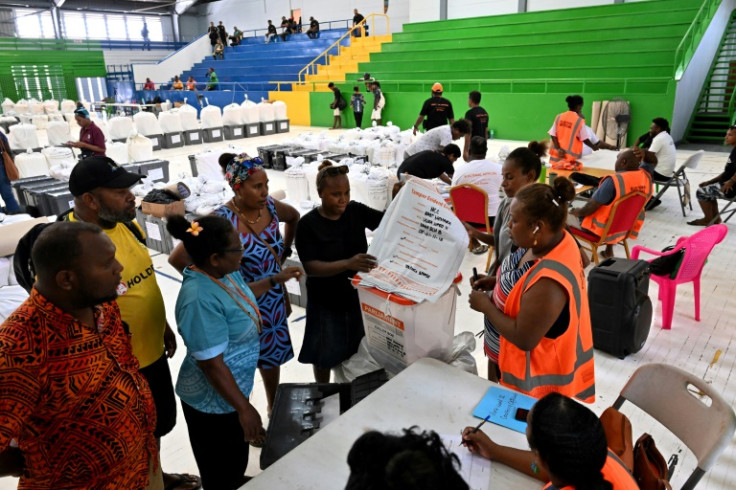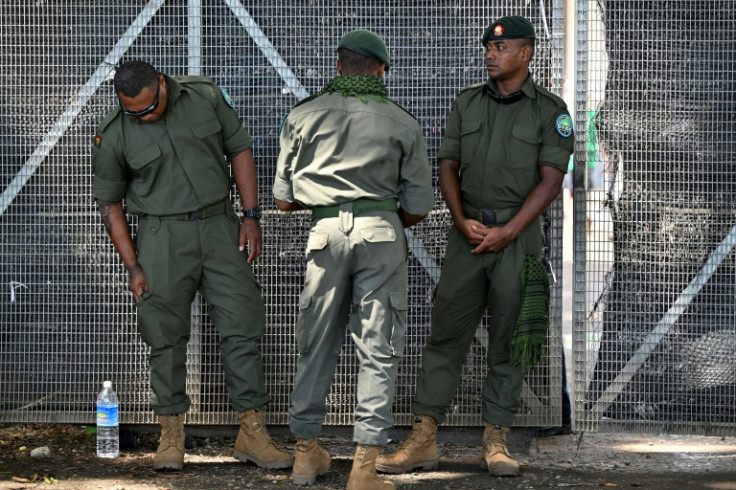Solomons' PM Contender Vows To Abolish China Security Pact

A leading contender to become the Solomon Islands' next prime minister has vowed to rip up a security pact with China, as the Pacific nation began counting votes Thursday in a pivotal general election.
The unfolding contest has cast the spotlight on China's efforts to stamp its mark on the South Pacific, and has been pitched in part as a referendum on Beijing's growing influence in the country.
Prominent opposition figure Peter Kenilorea further underlined the stakes by pledging to scrap a contentious security pact inked with China in 2022.
"If we are in government, we will abolish the security treaty," leadership aspirant Kenilorea told AFP from his village base on the island of Malaita.
"We don't think that it's beneficial to the Solomon Islands," the former top diplomat said.
Incumbent Prime Minister Manasseh Sogavare has championed deeper ties with Beijing since coming to power in 2019.
He has praised Chinese aid, trade and investment as the key to lifting living standards in one of the poorest nations in the world.
The centrepiece of Sogavare's embrace was a 2022 security pact that has seen rotating teams of Chinese police deployed in the archipelago.
The United States and Australia -- two of Solomon Islands' traditional security partners -- fear this pact could one day pave the way for a Chinese military base.
Kenilorea, a former United Nations official, lamented his country's uneasy position in the middle of the world's two largest military and economic powers, China and the United States.
"We don't have natural enemies," he said.
"It has put us on the map for the wrong reasons. To raise tensions unnecessarily here, in the geopolitical scheme of things, is something we don't really need."
Ballots were trucked into a heavily guarded counting centre in the capital Honiara on Thursday morning, watched over by international teams of uniformed Fijian soldiers and Australian police.
Startling and unproven claims of foreign interference upped the ante for what was already billed as Solomon Islands' most crucial vote in a generation.
State-backed Chinese news outlets have pushed reports that the United States might orchestrate riots and unrest to block Sogavare from returning to power.
US Ambassador Ann Marie Yastishock has denounced such rumours as "blatantly misleading".
"We strongly refute allegations being made in known propaganda outlets that claim USAID and the US Government has sought to influence the upcoming election in Solomon Islands," she said in a statement.
If Sogavare fails in his bid to return as prime minister, it would not necessarily spell the end of China's ambitions in Solomon Islands.
While his most prominent rivals view Beijing with a mix of scepticism and alarm, there is no shortage of other candidates who are happy with the status quo.
China has paid tens of millions of dollars into a discretionary development fund used by Solomon Islands' politicians during the last term of government, according to Australian researchers.
Critics suggest this fund was essentially a means to curry favour with key members of the government.
Candidates have begun winging their way back to Honiara in anticipation of the backroom bartering that will decide the new government.
Once the parliament's 50 members are decided, they will begin negotiating behind closed doors to cobble together a ruling coalition.
Prolonged and secret discussions have stoked unrest in the past, as voters begin to suspect the involvement of foreign interests.
These election "camps" are often held inside the casino hotels that line the Honiara foreshore.
"We might not know what is going to happen until a good two or three weeks after the election," Pacific watcher Graeme Smith from Australian National University told AFP in the lead-up to voting day.
"It's a very unpredictable process. It comes down, essentially, to who is the most charismatic man in the room."
Election authorities and the sizable police presence roaming the streets of Honiara have so far kept a lid on possible sources of discontent.
Chief electoral officer Jasper Anisi said Thursday that "everything is peaceful" -- no mean feat in a nation where elections have turned violent in the past.
Election officials anticipate early results should start trickling in on Friday.

© Copyright AFP 2026. All rights reserved.





















